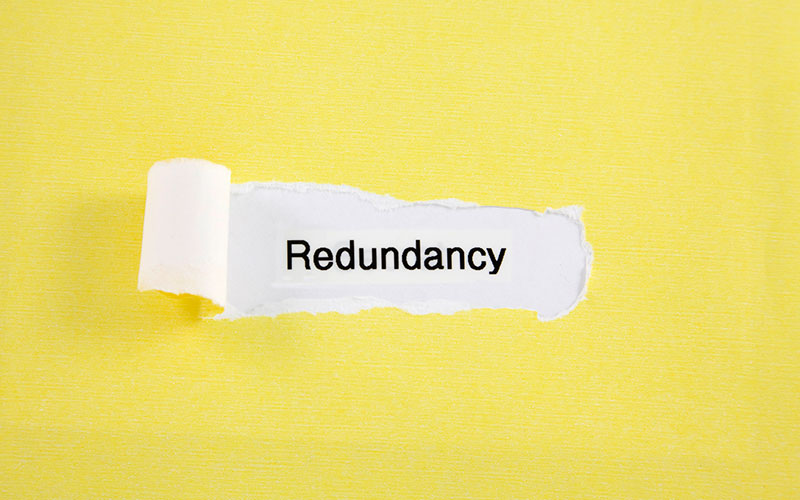Recruiters warned not to chuck the redundancy rulebook out

Recruiters have been warned that the rulebook governing redundancies does not go out of the window – even in lockdown.
Yesterday Prime Minister Boris Johnson moved to shut shops selling “non-essential goods”, libraries, outdoor gyms and playgrounds and places of worship. And yesterday also saw Recruiter’s lead story contain a warning from veterans from the financial meltdown of 2008/09 about the dangers of making recruiters redundant.
Consequently, Recruiter spoke to legal experts about the potential pitfalls that remain present should they choose to do so.
Melanie Stancliffe, partner at law firm Cripps Pemberton Greenish, told Recruiter the rule books do not go out the window, even in these unprecedented times.
“Recruiters will still need to ensure they are acting within the law and that if they terminate contracts they do so for a fair reason, following a fair process and giving the required notice period. Given that most of the country is now working from home it may mean that dismissal processes need to be undertaken remotely.
“Just because individuals are not in the office does not mean dismissals can be carried out without consultation or a fair process. Meetings can easily be undertaken remotely either via a telephone call or video conference, with the same stages (investigation, considering alternatives) needing to be taken when carrying out dismissal processes in less challenging times. It would be reasonable to reduce the period between meetings to enable redundancies to be carried out more quickly but the normal steps in a fair process should still be followed.”
Dr Sybille Steiner, partner at law firm Irwin Mitchell, told Recruiter when making employees redundant recruiters will have to make sure that they comply with the legal requirements for a fair redundancy so that employees who have the requisite length of service do not claim unfair dismissal.
“Recruiters should also consider furloughing staff in accordance with the Coronavirus Job Retention Scheme, which the chancellor announced last Friday. The scheme is currently being put into place and we do not yet know all the details but, if at all possible, it should be worth waiting for and to try and pay people something until then, if possible rather than making employees redundant.”
Jahad Rahman, partner at Rahman Lowe Solicitors, told Recruiter while a redundancy is a potentially fair reason for dismissal, a dismissal for redundancy will be unfair if:
- there is not a genuine redundancy situation
- the employer’s fails to consult/warn the employee
- the employer fails to adopt a fair/objective selection criteria
- the employer fails to give consideration to/offer alternative employment
- the employer fails to follow a fair procedure prior to dismissal.
“A downturn in work as a result of the current Covid-19 situation would probably amount to a genuine redundancy situation in my view, as recruiters could argue that the work that recruitment agents are employed to do has disappeared or is likely to disappear in the next few weeks/months. However, if they fail to consult and/or adopt a fair process prior to dismissal, then those with more than two years’ service could pursue claims of unfair dismissal.
“Recruiters should also consider the government’s package of measures to support businesses prior to dismissal. Larger employers would need to follow a collective consultation process with trade unions/employee representatives to avoid a claim for failure to inform and consult – the penalty for which is a ‘protective award’ of up to three months’ pay.”
Also touching on the measures announced by the chancellor on Friday, Beverley Sunderland, managing director at Crossland Employment Solicitors, added: “Given that the government has in place the coronavirus job retention scheme, which will pay employees 80% of their salary or £2.5k whichever is the lower, then an employer not taking advantage of this, and who makes redundancies, may be considered to be acting unreasonably by an employment tribunal as they have not done all they reasonably can to avoid redundancies.
“Also, an amendment to this scheme is being tabled today to allow self-employed people to claim 80% of their net average earnings averaged over the last three years or £2,917, whichever is the lower.”
Rachel Kendall, a solicitor in the employment team at law firm Kemp Little urged agencies to ensure they follow – as far as they can - the usual employment law requirements in relation to redundancy and lay-off in relation to their own employees, temps and agency workers.
“They should review the contract they have with each individual, in particular to identify whether they are a genuine employee, or worker, or provided by a Personal service company, as different legal considerations will apply in each case. Handling this correctly now will avoid legal arguments and claims later – which many businesses will not have the time or resources to manage.
“The recently announced Coronavirus Job Retention Scheme may well mean however that agencies can avoid making employees redundant - they may be able to put them on Furlough Leave instead, although we are still waiting for further detail on the exact arrangements and eligibility for this scheme, which is likely to be available in April. Further plans are also being put in place to offer similar protection to ‘freelancers’ and the self-employed – which could well help agency staff who are not employees. We currently have very little detail on the mechanics of this scheme, but this may well be good news for recruitment agencies and their staff who are not employees as it could offer comparable protection of income.”
• Comment below on this story. You can also tweet us to tell us your thoughts or share this story with a friend. Our editorial email is [email protected]




